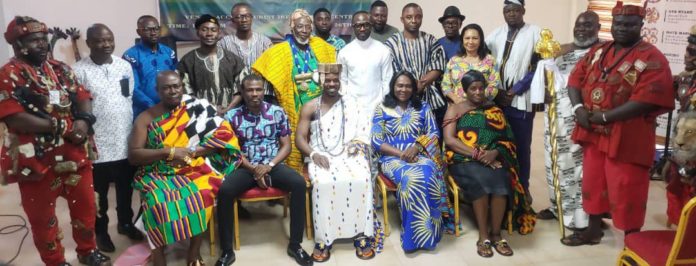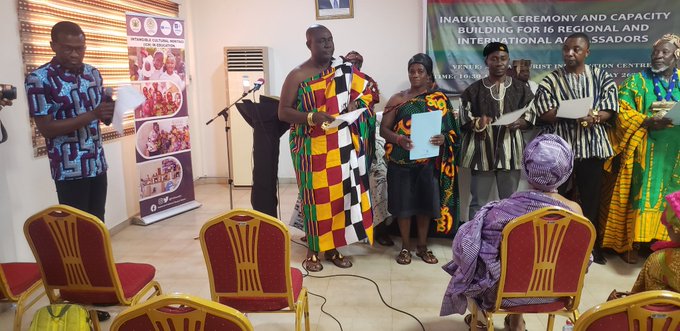The Ministry of Tourism, Arts and Culture, and the National Folklore Board are working to develop and implement tourism policies and activities involving the participation of communities and the youth in the preservation and enhancement of Ghana’s cultural heritage.
The initiative, which would be done in collaboration with other cultural agencies, is aimed at creating a strong relationship between tourism and culture to help Ghana become a competitive and attractive place to live, visit, and make a business investment to drive sustainability and development.
Mr. Mark Okraku Mantey, Deputy Minister of Tourism, Arts and Culture made this known at the opening of the first edition of a Multi-National Summit organised by the National Folklore Board to mark this year’s World Folklore Day celebration, on Monday, in Accra.
The two-day event, on the theme: “Igniting the interest of African youth in folklore for sustainable development,” is aimed at raising awareness about folkloric traditions of the country.
He said folklore was the embodiment of a culture that was shared by a particular group of people and had the power to transform an entire society, strengthen local communities and forge a sense of identity and belonging for people of all ages hence the need for the youth to focus on utilizing it to build a strong, united, and great nation.
He said the youth dominated the African continent and that there was the need to leverage on the abilities and skills of the young, vibrant and energetic people to spearhead the development process of the continent.
The Deputy Minister noted that “a mass representation of youth involvement in addressing issues and concerns regarding heritage management, sustainable tourism, and community involvement will contribute immensely to the development and safeguarding of Ghana’s cultural heritage.
He said the youth today were also potential agents of positive social change that would yield greater economic and social well-being in the perspective of sustainable development for generations to come and could act as a bridge between cultures and serve as key agents in promoting peace and intercultural understanding.
Mr. Mantey said investing in local cultural resources, particularly folklore, could enhance sustainability in the tourism and creative industries, open opportunities for the youth, and help strengthen identity and social cohesion.
Tourism also provided Africans an upper hand to develop attractive tourism products from their folklore and culture to attract many tourists to visit the continent hence the need to create awareness, educate and train the youth, as well as involve communities in the process of conserving and enhancing cultural heritage for sustainable tourism development.
He added that a flourishing cultural economy had the potential of improving the social and economic status of a country as well as positively contributing to the life of its communities and that the youth must play an integral role.
Prof. Kodzo Gavua, Lecturer, University of Ghana- Archeology Department, said it was imperative for Africans to redefine themselves and that: “Once we begin to appreciate what we have, we will be in the position to ensure we have our self-dignity and satisfaction. Studying folklore will also inspire us to think logically and bring us back to understand ourselves.”
Madam Bernice Ann-DehKumah, Executive Director, National Folklore Board, said folklore was considered a topic of great importance within the educational sphere, especially in a child’s early years of schooling and as such the Board had established Folklore Clubs in about 15 schools in Accra to educate children between the ages of 5-14 with the intention of establishing one in each region across the country.
“Sustainable development is an important subject matter in African countries and as a result, every factor that contributes to it or promotes it must be carefully considered — whether tangible or intangible cultural heritage; nothing should be left out.”
She said the Board was taking the necessary steps to compile a National Register of Intangible Cultural Heritage and further follow the procedure to list it on the world heritage register to attract tourists into the country.
Madam Kuma said there was the need to collaborate with neighboring African Countries to enable Ghana to enlist in the world heritage register and celebrate folklore to rekindle the interest of the African youth in matters of intangible cultural heritage.
Source: GNA



